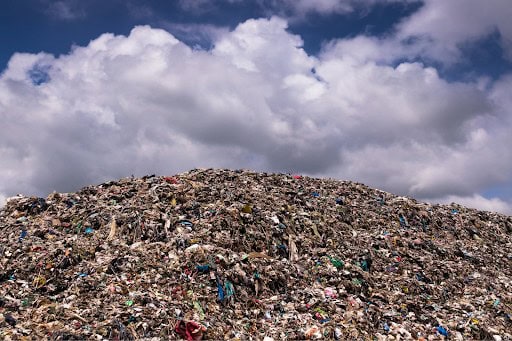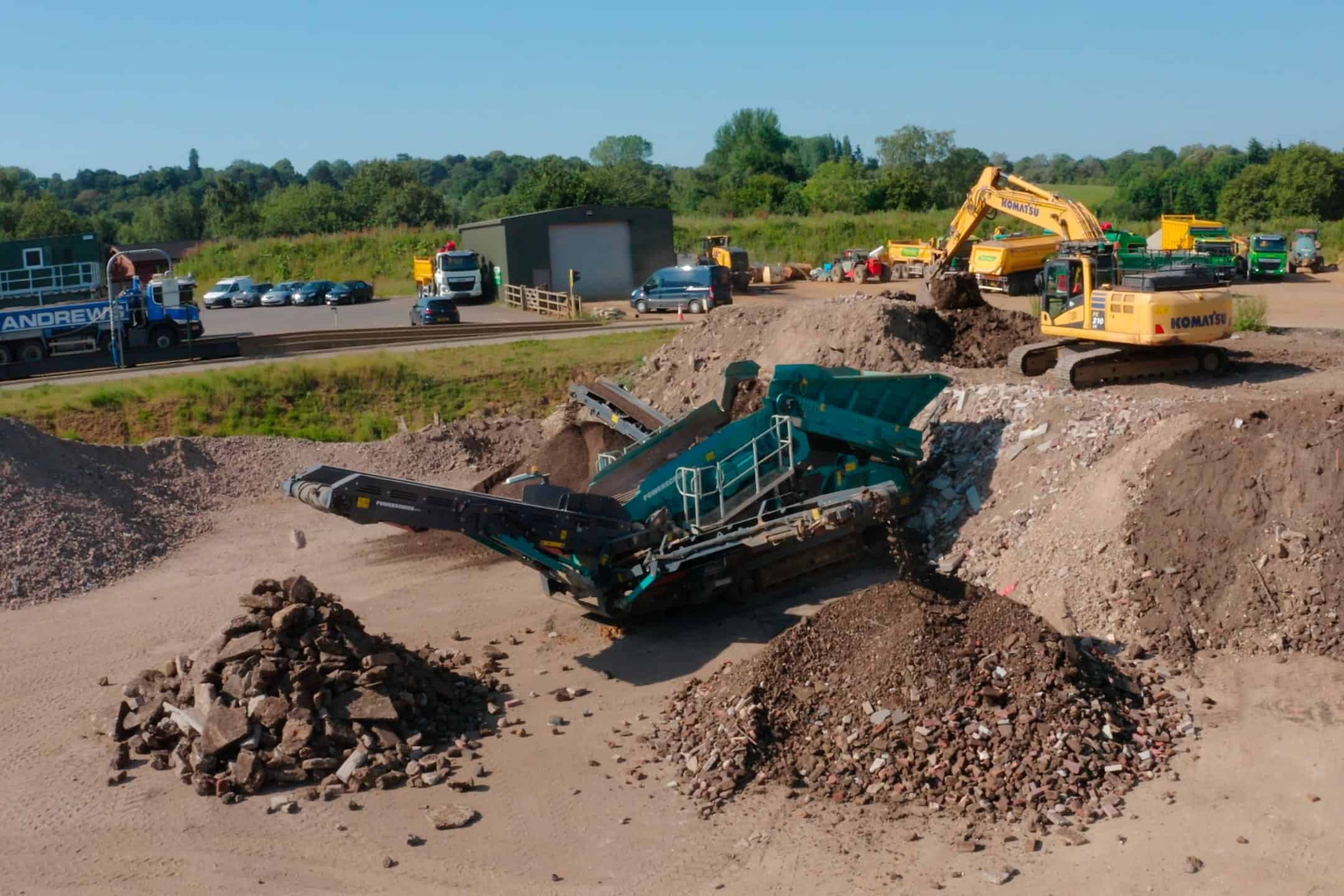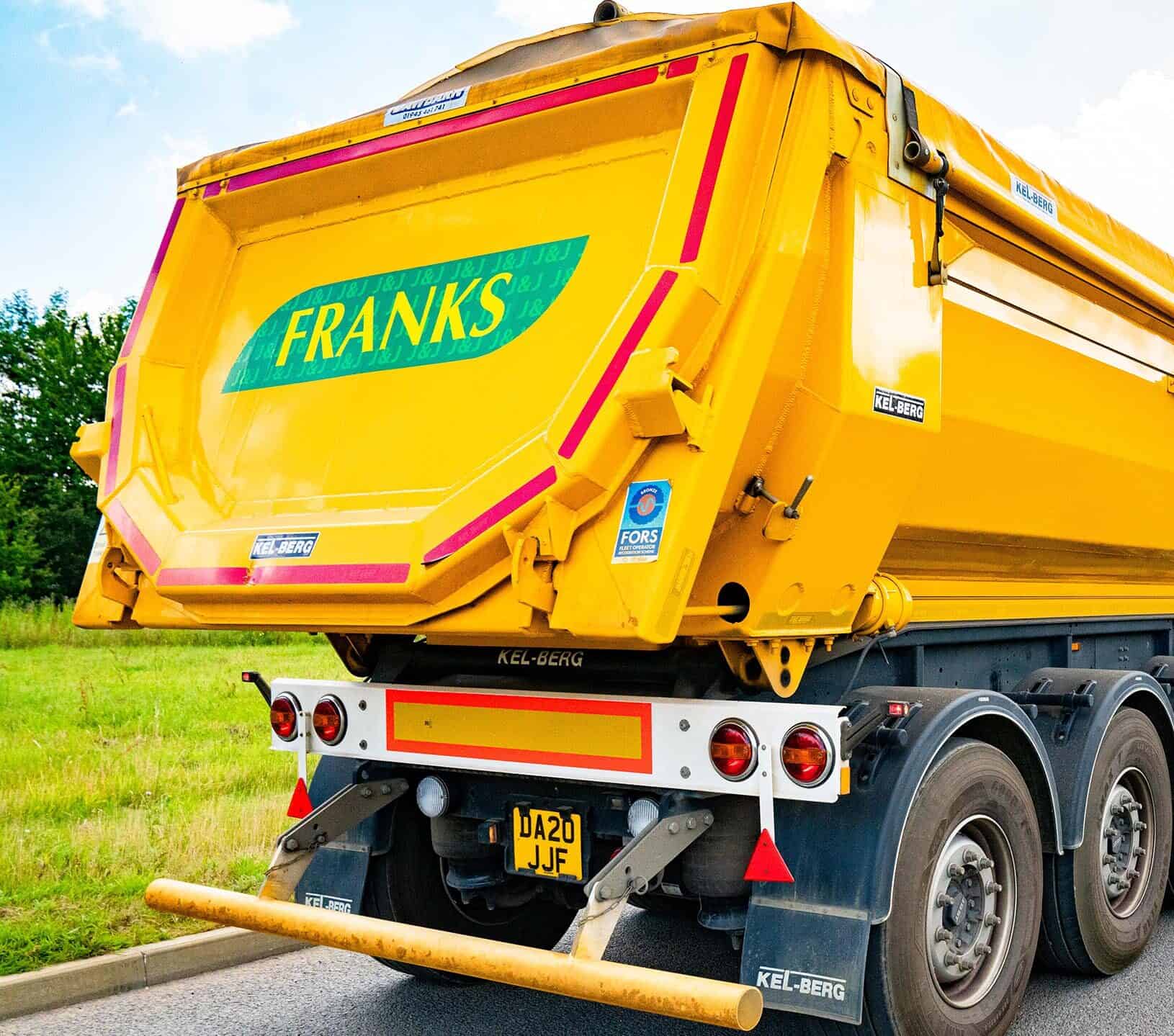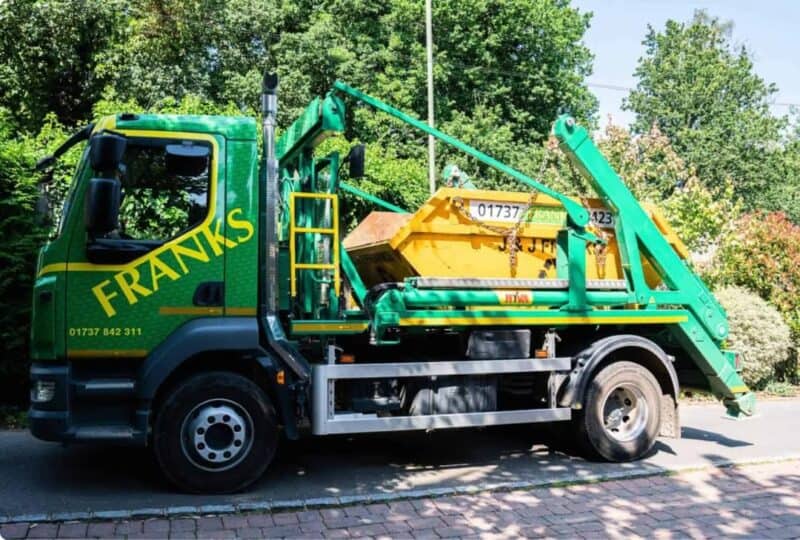As sustainability becomes ever more important in the construction industry, the need to reduce landfill waste has become critical. One of the key ways to achieve this is through the use of recycled aggregate products, which not only help reduce the strain on landfill sites but also provide an eco-friendly alternative to traditional construction materials. At J&J Franks, we are committed to promoting the use of recycled aggregates and their benefits to both the environment and construction projects.
What Are Recycled Aggregate Products, and How Are They Produced?
Recycled aggregate products are construction materials that have been recovered from previously used materials, processed and repurposed for use in new building projects. They are collected from waste materials like concrete, brick and asphalt on demolition sites and construction projects. These materials are then crushed, cleaned, and processed to form new aggregates that meet specific construction standards.
At J&J Franks, materials recovered from construction waste are carefully sorted at our recycling facilities, which are equipped with advanced technology for the separation of aggregates. The aggregates then undergo a thorough quality control process to ensure they are suitable for various projects.
The process involves
Collection:
Waste materials from demolition sites or construction projects are gathered.
Sorting and Cleaning:
The collected materials are sorted to remove contaminants, such as metal and plastics, ensuring only usable concrete, brick, or asphalt is recycled.
Crushing and Screening:
The sorted materials are crushed into smaller pieces and then screened to produce aggregates of different sizes.
Final Processing:
The aggregates are refined and tested to meet industry standards before being made available for construction use.
This process helps ensure that recycled aggregate products retain their structural integrity while being more sustainable than their virgin counterparts.

How Do Recycled Aggregates Reduce Landfill Waste?
One of the biggest advantages of recycled aggregate products is their role in reducing landfill waste. Construction and demolition activities generate a significant amount of waste that often ends up in landfills. By reusing materials that would otherwise be discarded, recycled aggregates help divert waste from landfill sites, preserving valuable space and reducing environmental pollution.
The UK government and various environmental agencies have been working to limit the amount of waste going to landfills, and recycled aggregates offer a practical solution to this challenge. Every tonne of recycled aggregate used prevents a tonne of waste from being disposed of in a landfill. This directly reduces the pressure on waste management infrastructure while helping construction companies comply with sustainability and waste reduction targets. Additionally, recycling concrete and other materials reduces the need for primary aggregates, which are typically sourced through environmentally disruptive quarrying activities. Using recycled aggregates, construction projects can lower their environmental impact and contribute to resource conservation.
What Projects Are Best Suited for Recycled Aggregates?
Recycled aggregate products can be used in a wide range of construction projects, making them versatile and valuable in both large and small applications. Some key examples include:
- Road Construction
Recycled aggregates are ideal for use in road base layers, where durability and strength are required. They provide a solid foundation for roads while reducing the need for primary materials. In addition, using recycled aggregates in road construction helps conserve natural resources like sand and gravel.
- Landscaping Projects
Recycled aggregates are a cost-effective and eco-friendly option for landscaping applications such as pathways, garden beds, and drainage solutions. They provide excellent drainage properties and are durable enough to withstand outdoor conditions.
- Commercial and Residential Construction
Recycled aggregate products are commonly used in concrete mixes for foundations, pavements, and even structural components. Their performance is comparable to primary aggregates, making them a suitable choice for commercial and residential projects.
- Public Infrastructure
Finally, recycled aggregates are widely used in public works, including bridges, retaining walls, and utility infrastructure. Their strength and durability make them an excellent option for long term projects that require the strongest materials.
Environmental and Financial Benefits
The benefits of recycled aggregate products go beyond just waste reduction. They also offer significant environmental and financial advantages:
- Lower Carbon Footprint
The production of recycled aggregates uses significantly less energy than the extraction and processing of primary aggregates. This results in a lower carbon footprint, contributing to the reduction of greenhouse gas emissions associated with construction activities.
- Resource Conservation
By using recycled aggregates, construction projects help conserve natural resources like limestone, sand, and gravel, which are commonly used in primary aggregates. This conserves ecosystems and reduces the need for destructive quarrying practices.
- Cost Savings
Recycled aggregates are generally more cost-effective than primary materials. Since they are derived from waste products, the raw material costs are lower, resulting in savings for construction companies. Using recycled aggregates can also help companies avoid landfill disposal fees and meet green building certification requirements.
How Do Recycled Quarry Products Meet Regulatory Requirements?
Regulations around recycled aggregate products are designed to ensure that these materials are safe and suitable for use in construction. In the UK, recycled aggregates must comply with British Standards such as BS EN 12620, BS EN 13242, and the Waste and Resources Action Programme (WRAP) quality protocol for the production of recycled aggregates.
At J&J Franks, we follow strict guidelines to ensure that all recycled aggregate products meet the necessary quality and safety standards. Our recycling facilities are equipped with advanced technology that allows us to separate, process and test materials to ensure they are free from contaminants and meet the specific requirements of different construction projects.
The use of recycled aggregate products in construction is a practical and sustainable solution to reducing landfill waste and preserving natural resources. By incorporating recycled aggregates into construction projects, companies can benefit from cost savings, improved sustainability credentials and compliance with regulatory requirements. At J&J Franks, we are proud to offer high quality recycled aggregates that not only meet industry standards but also support a circular economy. Whether you are working on a road, landscaping, or infrastructure project, our recycled aggregates provide an alternative to traditional building materials.
For more information on our recycled aggregate products and how they can benefit your construction projects, contact us today. Together, we can build a more sustainable future.









